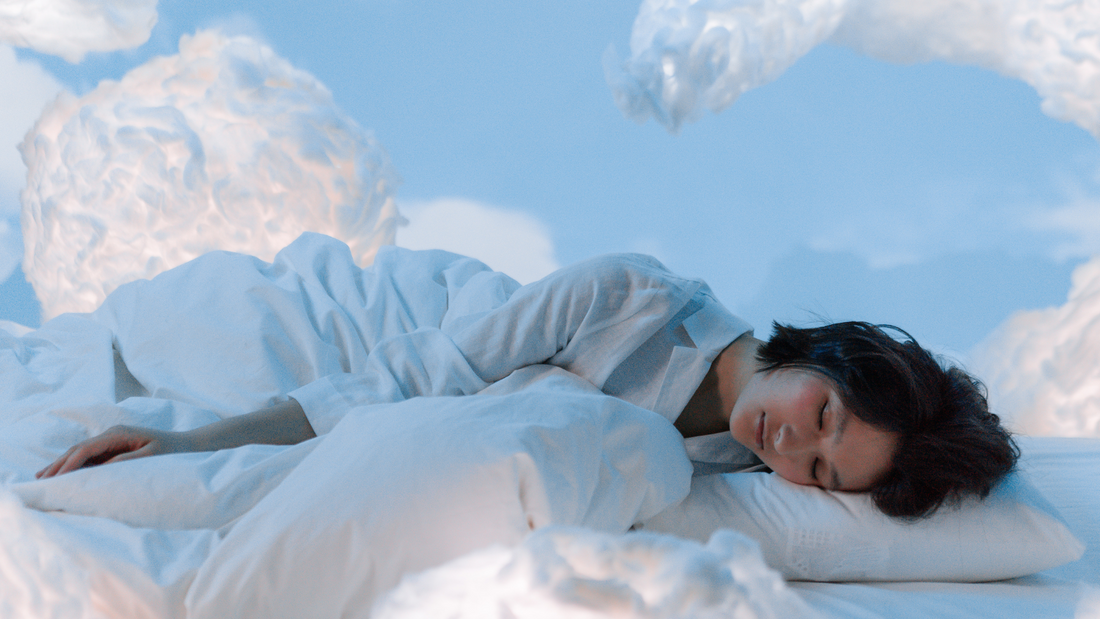Better understand the link between your circadian rhythm and your sleep. For restful nights and improve your well-being.
Sleep, much more than a simple nocturnal break, plays a crucial role within our body, orchestrated by the circadian rhythm. This internal biological clock, housed in our brain at the hypothalamus, regulates various vital functions, including sleep, hormonal production, and even our mood.
The circadian rhythm: conductor of our health
Located in the hypothalamus, the circadian rhythm synchronizes our physiology with the day/night cycle. Acting like an orchestra conductor, it influences our cognitive abilities, our body temperature, and above all, our sleep. By controlling melatonin production, it signals our body the ideal time to sleep.
The importance of sleep for optimal health
The quality of our sleep is closely linked to the health of the circadian rhythm, and its impact on our overall well-being is significant. Disrupted sleep cycles can lead to adverse physical and mental health consequences, ranging from reduced concentration to metabolic disorders.
Personalized circadian rhythm: understanding your needs
Each individual has a slightly different circadian rhythm, influencing their sleep preferences. Some are natural early risers, while others are more active at night. Understanding your own circadian rhythm is essential to optimizing your sleep. It's time to put aside excuses like "I'm not a morning person" and focus on understanding and respecting your circadian rhythm!
Circadian rhythm in babies
Babies are born with a biological clock in place, but their circadian rhythm gradually shifts over the first few months to synchronize with the day/night cycle. During this phase, babies respond to environmental cues such as natural light to adjust their body clock. Sensolight intervenes by offering adapted atmospheres, promoting a smooth transition and thus contributing to peaceful nights. Being sensitive to light, babies benefit from exposure to natural light during their waking periods, strengthening the synchronization of their circadian rhythm. In summary, Sensolight plays a role in providing pure, clean light adjusted to support the development of the circadian rhythm of babies and adults by promoting peaceful nights.
Circadian rhythm disorders: desynchronization with varied consequences
Circadian rhythm sleep disorders manifest as a desynchronization between internal sleep-wake rhythms and the light-dark cycle. People may experience insomnia, excessive daytime sleepiness, or both. These symptoms usually occur when the internal clock realigns itself.
Internal and external causes of circadian rhythm disorders
The causes of these disorders can be internal, such as phase advance or delay syndrome, or external, such as jet lag or long work days. People with Alzheimer's disease, Parkinson's disease, or who have suffered head trauma or encephalitis may also have sleep disorders linked to the circadian rhythm.
Consequences of circadian rhythm disorders
If external or internal desynchronization occurs, other circadian rhythms, such as body temperature and hormone secretion, may be affected. In addition to sleep disturbances, this can lead to symptoms such as nausea, feeling unwell, irritability and depression. Additionally, the risk of cardiovascular and metabolic disorders may increase.
The importance of light in regulating the circadian rhythm
Light plays a crucial role in synchronizing the circadian rhythm. By understanding the impact of light on our biological clock, we can optimize our light environment to promote a healthy circadian rhythm. Exposure to intense light, whether from the sun or artificial light with an intensity of 5,000 to 10,000 lux, at the right time to wake up, helps to accelerate resynchronization. Additionally, using sunglasses to decrease light exposure before bedtime may be beneficial.
The circadian rhythm: a valuable internal clock
The circadian rhythm is the human body's internal clock, a built-in biological rhythm of approximately 24 hours governing physiological processes such as sleep and eating. This internal clock sends you signals to indicate when to sleep or eat, also contributing to other physiological processes. The circadian rhythm fluctuates throughout the day in response to external elements, notably light, thus explaining our propensity to sleep at night and be awake during the day.
Find out more: discover our recent article on sleep and waking up to light!
Our in-depth article explores the different phases of sleep and waking up that play an essential role in our daily lives. Thus, you will discover how light can transform this experience.
Join our quest for restful sleep and discover how light can be your ally in the search for the perfect balance. After all, a peaceful night is the prelude to a bright future.
Sources:
https://www.msdmanuals.com/fr/professional/neurological-troubles/sleep-and-vigilance-troubles/sleep-circadian-rhythm-troubles https://cancer.ca /en/cancer-information/reduce-your-risk/be-safe-at-work/shift-work-and-the-circadian-rhythm
https://www.moncomplementbienetre.com/conseils-bien-etre/sommeil/sommeil-quest-ce-que-le-rythme-circadien/ https://www.cairn.info/revue-entreprises-sociales-2009- 3-page-14.htm?
ref=doi#xd_co_f=MDI3ZDNmYzgtMzU5Mi00NzVjLTk3ZjAtMDQ0N2QyZjI0MzNh~
